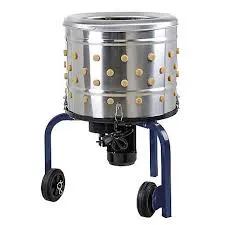agricultural exhaust fan
Oct . 14, 2024 09:55 Back to list
agricultural exhaust fan
The Importance of Agricultural Exhaust Fans in Modern Farming
In the contemporary world of agriculture, maintaining optimal environmental conditions in agricultural facilities is paramount for the health and productivity of crops and livestock. One vital component that plays a crucial role in achieving these conditions is the agricultural exhaust fan. These fans are engineered to help regulate temperature, humidity, and air quality, making them indispensable in greenhouse operations, livestock barns, and storage facilities.
Enhancing Air Circulation
Agricultural exhaust fans are primarily designed to promote air circulation within a space. In scenarios where there is stagnant or poorly circulated air, temperatures can rise, causing stress to plants and animals. High temperatures can lead to reduced crop yields and health issues in livestock. By continuously drawing out warm air and replacing it with cooler outside air, exhaust fans help maintain a more stable and suitable environment. This is especially important during the hot summer months, where temperature regulation becomes critical.
Moisture Control
Another key function of agricultural exhaust fans is moisture control. Excess humidity can create an ideal environment for the growth of mold, mildew, and various pathogens that threaten the health of crops and livestock. By providing consistent air exchange, exhaust fans help to reduce humidity levels and prevent the condensation that can lead to such problems. In greenhouses, for instance, maintaining appropriate moisture levels is crucial for optimizing plant growth and ensuring the longevity of production.
agricultural exhaust fan

Energy Efficiency
Modern agricultural exhaust fans are designed with energy efficiency in mind. With advancements in technology, many are equipped with variable speed drives that allow them to operate at different speeds depending on the environmental conditions. This not only saves energy but also reduces operational costs for farmers. By optimizing the performance of these fans, farmers can create an environment that enhances productivity without incurring substantial energy expenses.
Protecting Animal Welfare
In livestock operations, the welfare of animals is of utmost importance. Exhaust fans contribute significantly to achieving comfortable living conditions for poultry, cattle, and other livestock. A well-ventilated barn minimizes heat stress, which can affect feed intake, growth rates, and overall health levels. Furthermore, steady air circulation helps disperse harmful gases produced by animals, such as ammonia, thereby improving air quality within the facility.
Conclusion
In conclusion, agricultural exhaust fans are essential tools in modern farming practices. They enhance air circulation, manage humidity levels, save energy, and protect the welfare of both crops and livestock. As the agricultural sector continues to innovate and adapt to new challenges, incorporating efficient ventilation systems like exhaust fans will remain critical for achieving sustainable and productive farming. Investing in quality exhaust fans can ultimately lead to healthier plants, happier livestock, and better overall yields, which are crucial for meeting the food demands of a growing global population.
-
Automatic Feeding Line System Pan Feeder Nipple Drinker|Anping County Yize Metal Products Co., Ltd.
NewsJul.30,2025
-
Automatic Feeding Line System - Anping Yize|Pan Feeder,Nipple Drinker
NewsJul.30,2025
-
Automatic Feeding Line System - Anping County Yize Metal Products Co., Ltd.|Pan Feeder, Nipple Drinker
NewsJul.30,2025
-
Automatic Feeding Line System-Poultry Farming|Chicken Feeding&Watering
NewsJul.30,2025
-
Automatic Feeding Line System - Anping County Yize Metal Products Co., Ltd.|Pan Feeder Nipple Drinker,Broiler Farming
NewsJul.30,2025
-
Automatic Feeding Line System Pan Feeder Nipple Drinker-Anping County Yize Metal Products Co., Ltd.
NewsJul.30,2025






